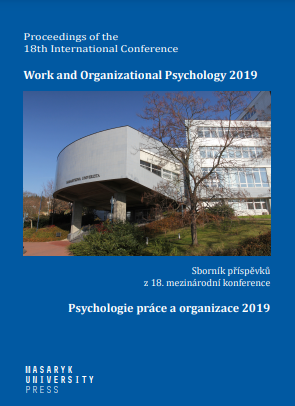Smart Factory. Jaké zaměstnance bude firma potřebovat v budoucnu?
Smart Factory. What Employees Will the Company Need in the Future?
Author(s): Aleš Gregar, Ivana Pejřová, Jana Matošková
Subject(s): Psychology, Business Economy / Management, Organizational Psychology, Human Resources in Economy
Published by: Masarykova univerzita nakladatelství
Keywords: Smart Factory; management system; digitization; robotization; work position; qualifications; working conditions; organizational culture;
Summary/Abstract: Objective. The purpose of the paper is to provide information about a research project aimed at supporting the implementation of the Smart Factory concept (management system with support of digitization and robotization) in the production plant ALPS Electric CZ, Sebranice, regarding changes in working roles, working conditions, development of employees, changes in conditions for in-company communication and overall changes in corporate culture in ALPS Electric CZ, Sebranice. For research purposes, the research problem was formulated and six research questions were set. Method. About 400 employees work at ALPS, of which about 350 are in production. The research target groups are six work groups that are directly related to production - process engineers, foremen, purchasing, planning and production preparation, logistics (focusing on material supply), manufacturing operators and middle management. Methods for data collection: document analysis, interviews, questionnaire, and findings from selected companies. With regard to the realization of research in one company, we will use descriptive statistics for the analysis and interpretation of data. Conclusion. The findings of the research will help ALPS management to identify and eliminate potential barriers concerning employees when implementing the Smart Factory concept. We will propose measures to support the implementation of the Smart Factory concept in the ALPS specifically focused on work positions and system measures supporting the “smart” change of the ALPS Electric corporate culture. Limitations. The conclusions of the research are based on one medium-sized production plant, and are not generally valid. The Smart Factory concept focuses only on the range of jobs that are directly related to production; it does not take into account the need to assess the impact of digitizing jobs indirectly related to production (ECO, HR, MKT).
Book: Work and Organizational Psychology 2019
- Page Range: 111-118
- Page Count: 8
- Publication Year: 2019
- Language: Czech
- Content File-PDF

